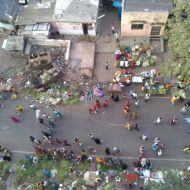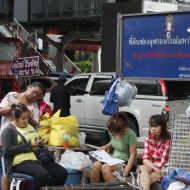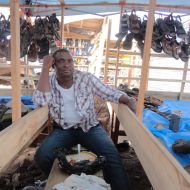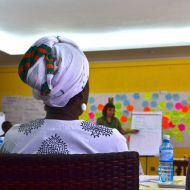The 70 Percent in Ghana (Hint: It’s the Informal Sector)
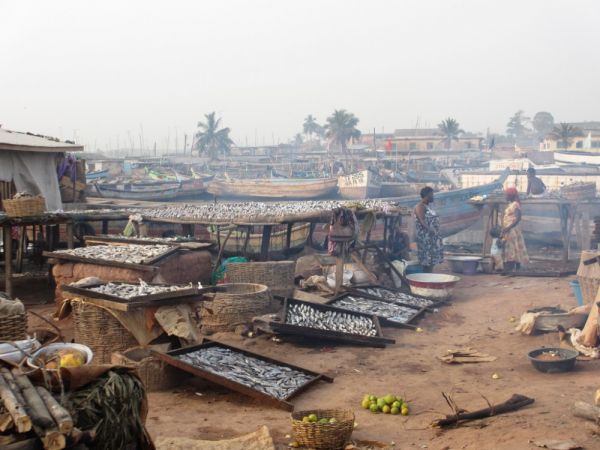
Taxing informal workers could generate revenue for urban improvements, but whether the poorest can — or should — pay remains up for debate. Photo credit: Nora Morgan via Flickr Creative Commons
Although Next City is based in Philadelphia, we’re now reporting stories from around the world. As a result we rely heavily on what people are saying online, hoping that Twitter feeds and Facebook pages give a good sense of how people are engaging with our content and the stories that matter in their hometowns.
But when I arrived in Accra, I was reminded of how many stories we’re inevitably missing because they’re published in print newspapers or they affect people who aren’t online. On my first full day in town, I picked up the Daily Guide (one of the city’s main newspapers) to learn what’s happening in Accra.
I was surprised to see that, actually, we’re focused on similar stories. There it was, on page eight of the April 8th edition, a story on how the Minister of Finance and Economic Development has charged the Ghana Revnue Authority with the task of taxing the informal sector.
According to the Guide, only 1.5 million people out of Ghana’s 24 million pay taxes. The article also noted that the informal sector accounts for 70 percent of the economy. It’s a conundrum, and the article pointed out that there aren’t any easy solutions.
The informal economy is certainly ripe for taxing. Little of the money generated by street vendors and small businesses ends up going back to the government in the form of taxes. At the same time, most of the people working in the informal economy are essentially subsistence workers who don’t have extra money to spare. Moreover, they don’t benefit from many government safeguards such as police, health care or even infrastructure.
The GRA has set up offices in Accra and Tema to register small businesses, hoping that this will encourage entrepreneurs to come forward. But will this mean that law-abiding people will be essentially penalized with taxes and regulation while their less conscientious friends will continue to profit?
As Ghana becomes a wealthier nation, much of that money is reinforcing the class divides already apparent on the streets of Accra. How can you tax the neediest, instead of trying to wring some money from those profiting from the country’s growing oil and resource economy? On the other hand, perhaps modest taxes on “the 70 percent” will help create a pool of funds for infrastructure and other social services, which individual informal sector workers couldn’t provide for themselves.
It’s a thorny issue — how do you encourage the entrepreneurialism of the informal sector while bringing in some taxes to support the whole city? Would taxes kill their livelihoods or would formalization enable entrepreneurs to better participate in the global economy?
As I spend the next week in Accra, I’m looking forward to forming a better answer to these questions.


